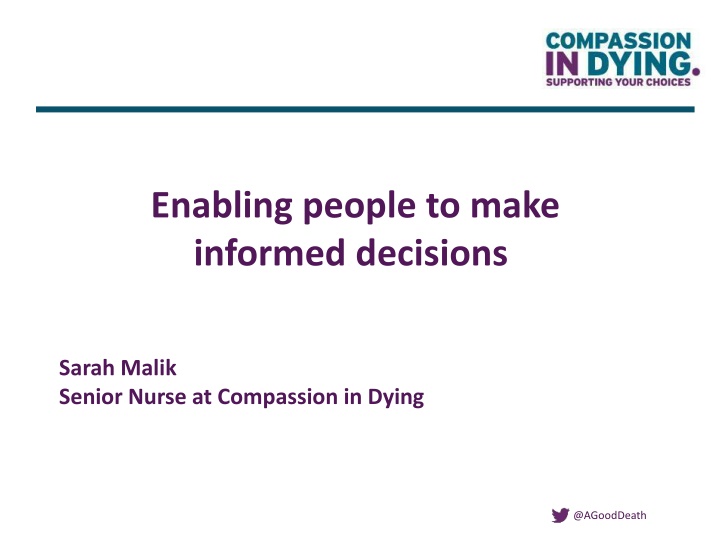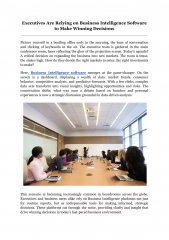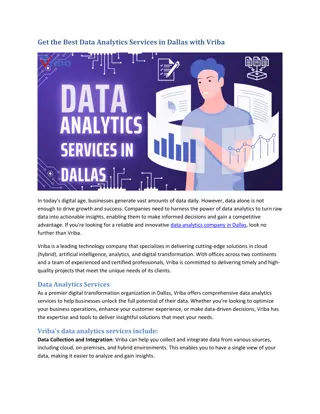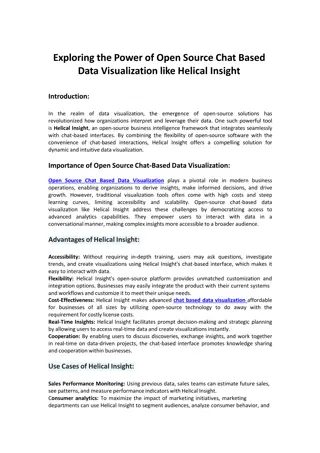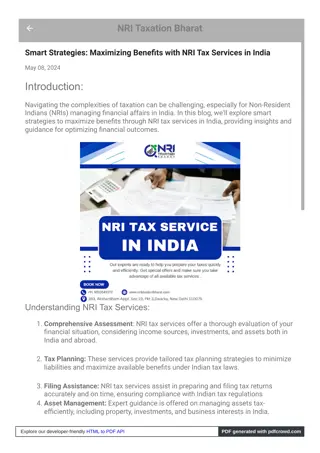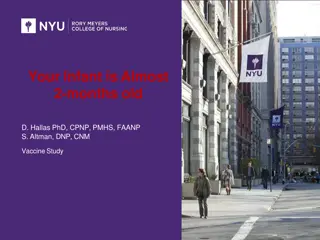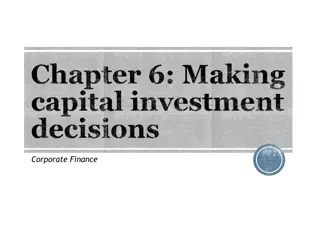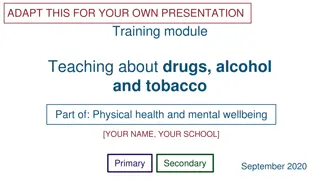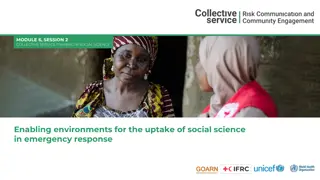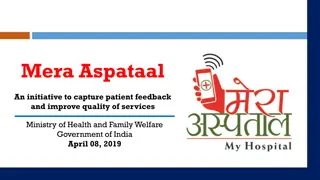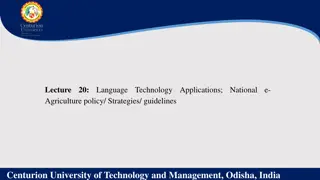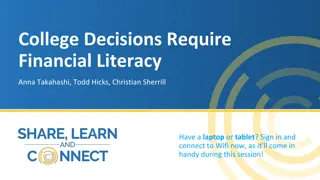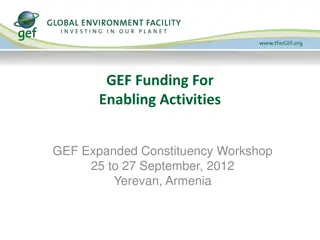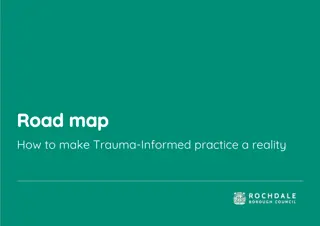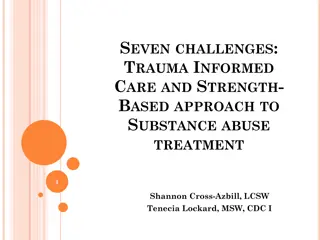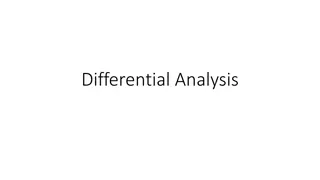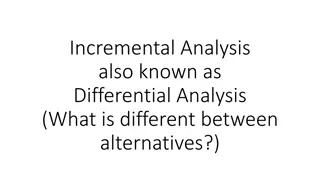Enabling people to make informed decisions
Providing valuable insights, Senior Nurse Sarah Malik from Compassion in Dying sheds light on making informed decisions. Learn more about the crucial role of education and compassion in guiding individuals towards a good death intervention.
Download Presentation

Please find below an Image/Link to download the presentation.
The content on the website is provided AS IS for your information and personal use only. It may not be sold, licensed, or shared on other websites without obtaining consent from the author.If you encounter any issues during the download, it is possible that the publisher has removed the file from their server.
You are allowed to download the files provided on this website for personal or commercial use, subject to the condition that they are used lawfully. All files are the property of their respective owners.
The content on the website is provided AS IS for your information and personal use only. It may not be sold, licensed, or shared on other websites without obtaining consent from the author.
E N D
Presentation Transcript
Enabling people to make informed decisions Sarah Malik Senior Nurse at Compassion in Dying @AGoodDeath
Mission and values We help people prepare for the end of life. How to talk about it, plan for it, and record their wishes. Our vision is a world in which individuals get the end of life care that s right for them. We believe everyone should be given the information and support needed to make decisions about their treatment and be helped to plan ahead to ensure that their wishes are known and followed. We ve supported over 70,000 people. @AGoodDeath
Need for culture change There is a disconnect between what people want for end-of-life and what they have done to prepare: 76% have strong wishes regarding the end of life Only 10% want doctors to make the final decision about their treatment But only 7% communicate these wishes in advance 48% wrongly believe that they have the legal right to make treatment decisions on behalf of their loved ones, if their loved ones lose capacity @AGoodDeath
Information line My Mum had horrible things done to her as she was dying including being resuscitated, I knew she would not have wanted that how can I prepare so it does not happen to me? My husband had a stroke a year ago and now can t communicate at all. He is bedbound, incontinent and on a pureed diet. He always said he would hate to live in with this low quality of life, but he didn t do an Advance Decision and has no LPA in place so I feel powerless to support him. My husband had an Advance Decision form in place which refused all life- sustaining treatment if his condition worsened. The GP had a copy and ensured my husband was set up to be kept comfortable at home rather than admitted for treatment that would have been no benefit to him. @AGoodDeath
We collected data We received over 18,000 contacts between 1st January 2017 and 31st December 2019. ~ 7% of the queries received related to DNACPR forms and CPR decisions. In 2020, the proportion of calls that related to CPR more than doubled YouGov survey September 2020 (2,026 adults) @AGoodDeath
Many people want protection from CPR I m worried that CPR will crush my ribs. I have been resuscitated before - CPR is brutal I now have a DNAR in place and it really gives me comfort I know what I do and don t want, and I know why. I just want someone to hold my hand if I am dying. If God is ready for me, I am ready for him @AGoodDeath
Shared decision making led to better experiences My 91 year old husband was in hospital suffering from Covid. The registrar was very helpful, we discussed resuscitation fully and agreed to let my husband die peacefully. I was impressed by the time and consideration shown to me. @AGoodDeath
Inappropriate CPR caused distress My husband was 81 when he died and he d had many health complications. He said to everyone who would listen that when he died, he did not want to be revived. One morning he collapsed in hospital. Within half an hour I was there but the crash team were already hard at work. I heard this terrible thumping, I screamed at them stop, stop! He didn t want it. They should have known his wishes. He wanted dignity but he was deprived of it. They apologised profusely later but the sound of that machine thumping away, pummelling his chest, was deeply upsetting and unforgettable. @AGoodDeath
Good communication is key My husband was admitted to hospital with chest problems and had various tests before he was discharged. When I arrived home and looked in the discharge bag I was very surprised to see a DNAR form stating that this had been discussed with my husband and myself. Absolutely no such thing occurred. My husband was fully aware of everything that was going on and I would certainly have remembered such a conversation. I m not suggesting that a DNAR was inappropriate but it came as a real shock to read it without any warning. @AGoodDeath
Not having a voice caused distress Mum was given a DNR. The doctor informed me that it was a medical decision and that it is not something that would be discussed with the patient s relatives. I am furious. I struggled with doctors insisting on a DNR for my father... We had doctors insist that we didn t even have a right to an opinion. @AGoodDeath
Peoples rights to refuse treatment My sister asked about a DNAR at the hospital and they said 'this is a hospital not a hospice. We make people better. @AGoodDeath
Professionals face uncertainty Where do we get more DNACPR forms from? Does the form travel with the patient between care settings? The patient has DNAR but 999 said to do CPR while waiting for the ambulance, is this correct? Are photocopies valid? Can a nurse sign the form? The local ambulance trust is not accepting a form signed by the GP. Which form is correct? @AGoodDeath
Recommendations 1. Clear and accessible information, guidance and training on CPR conversations for professionals. 2. Conversations about what matters to each patient must be everyone's responsibility. 3. Improve public understanding of what CPR and DNACPR decision making. 4. Record-keeping and information sharing must be improved. 5. Discussions about CPR must not take place in isolation from a person s wider priorities and wishes. @AGoodDeath
Key learning People wanted protection from inappropriate CPR Poor communication and a failure to listen to people s preferences and concerns caused distress Most people would welcome a conversation about CPR and other life-sustaining treatments @AGoodDeath
The voices of individuals must remain at the heart of these conversations and everyone working in health and policy must ensure people s diverse experiences are heard and valued. If we are to ensure that end-of-life care is truly person-centred and lawful then we cannot shy away from having important DNACPR conversations as early as possible in a timely, open and sensitive way. sarah.malik@compassionindying.org.uk @AGoodDeath
